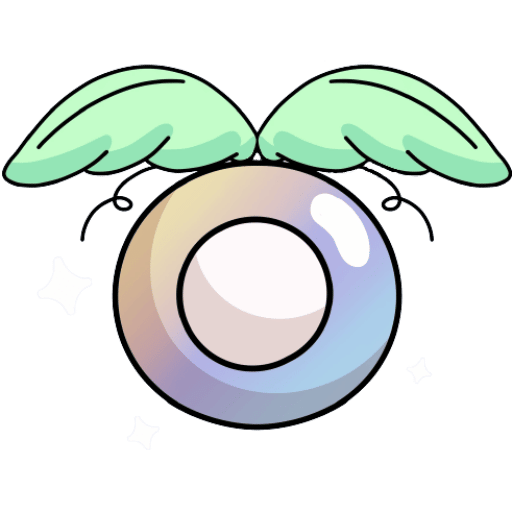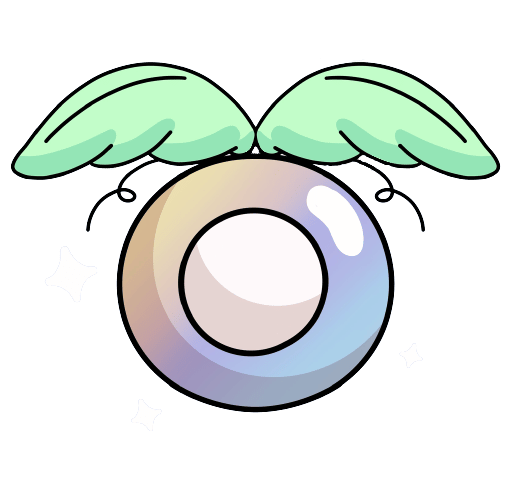TikTok Ban Live Updates: Trump Says ‘TikTok Is Back’ In Victory Rally As App Restores Access President-elect Donald Trump cheered TikTok’s return in a rally Sunday shortly after the platform welcomed back U.S. users, ending a 14-hour shutdown as a law banning TikTok nationwide took effect—with Trump promising to halt the ban when he takes office by extending a deadline for China-based ByteDance to sell the app. 5:30 p.m. EST, January 19Trump said, “as of today, TikTok is back,” while speaking during a “victory rally” as part of his three-day inauguration event on Sunday, telling the crowd in D.C., “we have no choice, we have to save it,” while suggesting the U.S. will own 50% of the company in what he referred to as a “joint venture” that would “make a lot of money.” 4:20 p.m. EST, January 19Trump adviser Jason Miller told CNN the president-elect’s team is “still finalizing” an executive order to delay the TikTok ban and give the platform more time to reach a deal to stay in the United States (the law banning TikTok by Jan. 19 gives the president the power to delay the ban by up to 90 days if ByteDance is making progress toward a sale). 4:10 p.m. EST, January 19A 19-year-old arrested for allegedly setting fire to a building that houses the office of Rep. Glenn Grothman, R-Wisc., told authorities early Sunday he was motivated by the TikTok ban, local police told multiple news outlets (law enforcement said nobody was injured). 3:10 p.m. EST, January 19TikTok CEO Shou Zi Chew is planning on attending Trump’s pre-inauguration victory rally in D.C., which is set to begin shortly, CNN reported earlier, citing unnamed sources—days after The New York Times revealed Chew plans to attend the inauguration itself, alongside tech billionaires Elon Musk, Mark Zuckerberg and Jeff Bezos. 1:50 p.m. EST, January 19TikTok is now back online for many American users, sending a popup message that states: “Welcome back!” adding, “As a result of President Trump’s efforts, TikTok is back in the U.S.”—though it still does not appear to be available on Apple’s App Store. 1 p.m. EST, January 19Sen. Tom Cotton, R-Ark., who chairs the Senate Select Committee on Intelligence, warned that “any company that hosts, distributes, services or otherwise facilitates communist-controlled TikTok could face hundreds of billions of dollars of ruinous liability” in a tweet responding to the company’s announcement that it’s restoring the app. 1 p.m. EST, January 19Some TikTok users reported the app has started working again—just over 12 hours after service was suspended. 12:30 p.m. EST, January 19TikTok tweeted it “is in the process of restoring service” and thanked Trump for “providing the necessary clarity and assurance to our service providers that they will face no penalties,” adding the company “will work with President Trump on a long-term solution that keeps TikTok in the United States.” 10:00 a.m. EST, January 19Trump announced he will sign an executive order Monday delaying the TikTok ban and called for the platform to be taken over by a joint venture with U.S. and current owners, also urging companies to prevent TikTok from “going dark” and vowing “no liability” for any tech firms that act before Monday. 7:03 a.m. EST, January 19Trump posted to Truth Social: “SAVE TIKTOK.” 12:00 a.m. EST, January 19A nationwide ban on TikTok took effect, formally barring internet service providers and app stores from offering the ultra-popular social media platform. 11:00 p.m. EST, January 18TikTok shut itself down in the United States at some point before 11 p.m. EST, greeting American users with a message that said “you can’t use TikTok for now” due to a “law banning TikTok” set to take effect Sunday—but the platform noted Trump “has indicated that he will work with us on a solution to reinstate TikTok once he takes office.” (Read more here.) 12:30 p.m. EST, January 18Trump signaled he would “most likely” issue a 90-day extension on the TikTok ban, saying an announcement would “probably” come Monday, though he did not definitively say whether he would do so. January 17TikTok said in a statement its service will “be forced to go dark” on Jan. 19 unless the Biden administration—which said earlier on Friday TikTok “should remain available to Americans” if “under American ownership”—guarantees Apple, Google and other service providers won’t be punished by supporting the app. January 17The Supreme Court ruled the law does not violate the First Amendment rights of the app and its users, upholding the federal government’s national security argument and leaving TikTok open to a ban on Jan. 19 unless it is sold to an American company. January 16The Biden administration does not plan to intervene against the law forcing TikTok’s ban or sale by Jan. 19, according to multiple outlets, one day after NBC News reported Biden’s team was “exploring options” on how it can avoid the app being shut down—though ABC reports Biden also won’t take action to enforce the ban against app stores or internet providers. January 16Senate Minority Leader Chuck Schumer, D-N.Y., said it is “clear that more time is needed to find an American buyer,” noting Senate Democrats’ failed attempt to pass a bill extending the Jan. 19 deadline and urging lawmakers for a solution that keeps TikTok in the U.S. while also protecting Americans’ data privacy (the law banning TikTok unless ByteDance sells the app passed on a bipartisan basis last year). January 14ByteDance would likely expect $40 billion to $50 billion for the platform’s U.S. operations, Wedbush analyst Dan Ives estimated (other analysts have offered a range of figures for how much TikTok is worth, depending on whether the deal includes TikTok’s powerful content algorithm). January 13Chinese government officials have considered selling TikTok’s U.S. operations to Trump-allied billionaire Elon Musk if the Supreme Court does not stop the ban from going through on Jan. 19, reported Bloomberg, citing unnamed people familiar with the matter—though the people noted the deliberations are preliminary and officials prefer to keep TikTok under the ownership of China-based ByteDance (ByteDance told Forbes it “can't be expected to comment on pure fiction” when asked about the Bloomberg report). January 10The Supreme Court heard oral arguments over the law requiring TikTok to be sold to a U.S. company or face a ban, with justices appearing “inclined” to uphold the law after appearing satisfied with its focus on the controversial Chinese ownership of the app’s parent company, according to The New York Times. January 9Billionaire Frank McCourt’s Project Liberty announced a proposal to buy TikTok’s U.S. operations—but not its algorithm—by migrating American users to a locally run digital infrastructure, a deal McCourt has suggested could be worth $20 billion, with interest from other investors like “Shark Tank” star Kevin O’Leary (it’s unclear whether ByteDance is considering the offer). January 6O’Leary, part of The People's Bid for TikTok, told Fox News’ Martha MacCallum he planned to buy the app and that he would need Trump’s help to do so. January 3The Justice Department asked the Supreme Court to uphold the law forcing the ban or sale of TikTok despite Trump’s support of the app, arguing TikTok has not shown enough to reason to justify a pause of the law’s date of taking effect and that Trump has not presented a viable argument for a pause. December 27, 2024Trump opposed the potential ban of TikTok in a court filing, arguing if the Supreme Court intervenes, he could secure a “political resolution” after his Jan. 20 inauguration that would keep the app in the U.S. December 18, 2024The Supreme Court announced it will review TikTok’s challenge against the federal law that could potentially ban the app, scheduling oral arguments for Jan. 10—just days before the law is set to become effective. December 16, 2024TikTok requested an injunction from the Supreme Court that would block the ban against it until the conservative majority court rules on TikTok’s legality or dismisses the case, saying the pause would “create breathing room for this Court to conduct an orderly review ... before this vital channel for Americans to communicate with their fellow citizens and the world is closed.” December 16, 2024Chew met with Trump at his Mar-a-Lago estate, according to CNN, and argued an injunction from the Supreme Court, which was ultimately not granted, would give Trump’s TikTok-friendly administration time to comment on the matter. December 6, 2024The U.S. Court of Appeals for the D.C. Circuit denied TikTok’s petition to review the law against TikTok after the court’s three-judge panel said national security concerns outweigh TikTok’s First Amendment rights, later declining TikTok’s request to halt its ruling upholding the law. May 14, 2024Eight TikTok users sued the federal government, accusing them of First Amendment violations and calling the ban “unconstitutionally overbroad.” May 7, 2024TikTok filed suit against the federal government, challenging the constitutionality of the ban and arguing the app and its American users were having their First Amendment rights violated. April 24, 2024President Joe Biden signed the bill requiring TikTok to be sold or banned, provoking a response from the platform, which claimed in a statement it “invested billions of dollars to keep U.S. data safe and our platform free from outside influence and manipulation.” April 23, 2024The Senate voted 80-19 to pass the bill, which Sen. Maria Cantwell, D-Wash., said was done to “prevent foreign adversaries from conducting espionage, surveillance, maligned operations, harming vulnerable Americans, our servicemen and women, and our U.S. government personnel.” April 20, 2024The House in an overwhelming 360-58 vote passed the legislation against TikTok, with Minority Leader Hakeem Jeffries, D-N.Y., saying in a statement the legislation was “designed to address legitimate national security and privacy concerns.” Get Forbes Breaking News Text Alerts: We’re launching text message alerts so you'll always know the biggest stories shaping the day’s headlines. Text “Alerts” to (201) 335-0739 or sign up here. When Did The Tiktok Ban Take Effect? The ban against TikTok became effective Sunday, Jan. 19, but the platform appeared to take itself online minutes earlier. Is Tiktok Back? When Will Tiktok Be Fully Restored? Many U.S.-based users reported the mobile app or website was working again as of Sunday afternoon at about 1 p.m. EST, and users were greeted with a message stating: “Welcome back!” However, the app still is not available for download on the iPhone App Store. In a message posted on its website, Apple said TikTok will remain on users’ devices if they have already downloaded it, but the app won’t get any further updates, which may “impact performance, security and compatibility” with the iPhone and iPad operating systems. It’s not clear when—or if—Apple will allow the app to return. Can Trump Stop Tiktok From Getting Banned? Yes—at least temporarily. Trump, who is opposed to banning TikTok despite once pushing for a ban, takes office a day after the deadline, so he was not able to stop the law from taking effect altogether. However, he announced Sunday he will extend the ban when he returns to office “so we can make a deal to protect our national security” by transferring TikTok to a joint venture with 50% U.S. ownership—though the law only allows Trump to extend the ban by 90 days if ByteDance is working toward a sale. Trump also said there will be “no liability” for companies that allow TikTok to stay live before he signs the order. TikTok said in a statement Sunday it was able to start restoring service because Trump promised no penalties for its service providers. If TikTok is not sold within 90 days, however, it’s unclear what Trump can do. Former Justice Department official Alan Rozenshtein wrote in a Lawfare op-ed Trump could lobby Congress to repeal the ban, though in doing so he would have to overcome the law’s bipartisan support. Here’s more on Trump’s options.



